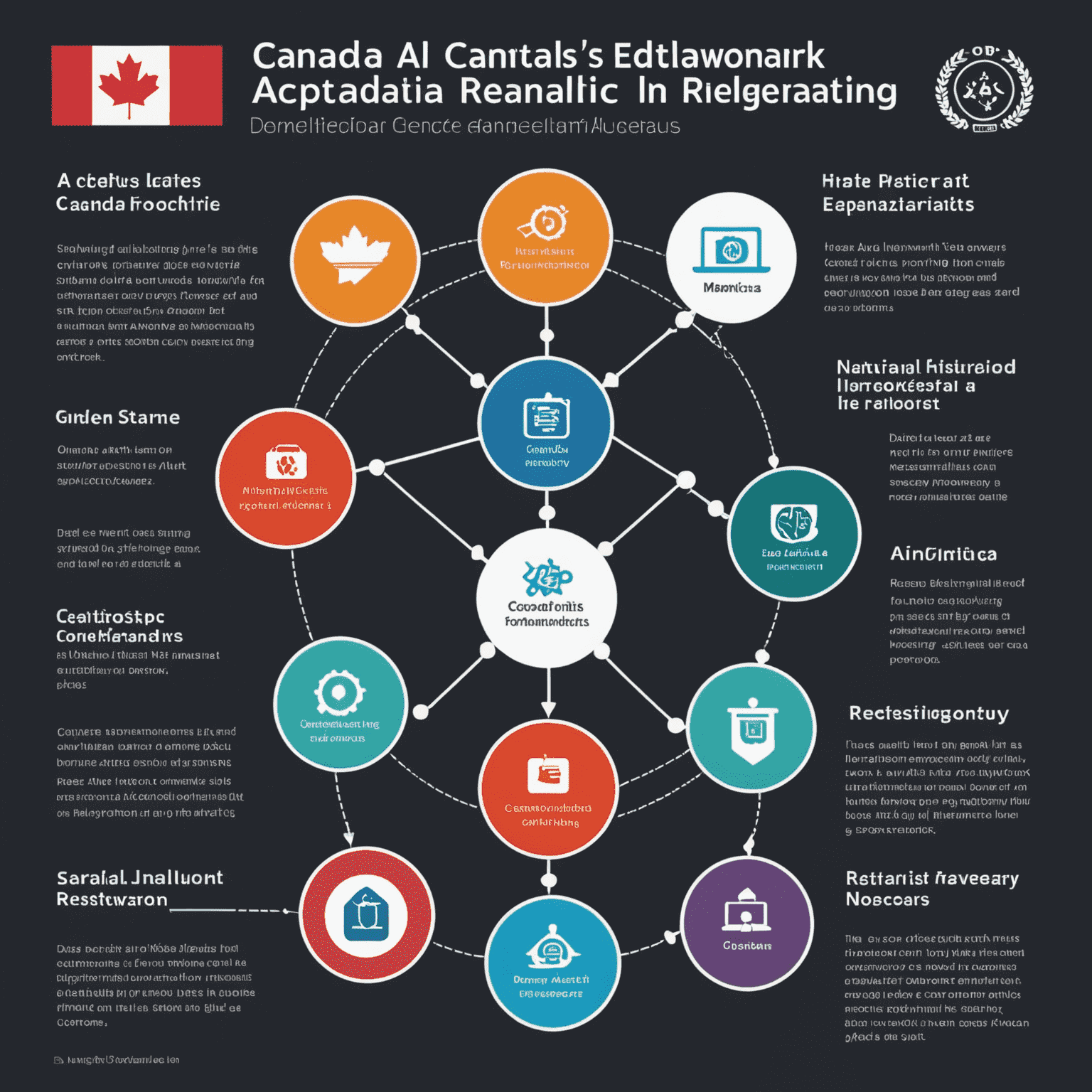Ethical AI: Canada's Approach and Regulations

As artificial intelligence continues to reshape our world, Canada has emerged as a leader in ensuring responsible AI development and deployment. This article delves into the nation's initiatives and policies aimed at addressing critical concerns such as bias, privacy, and transparency in AI systems.
The Canadian AI Ethics Framework
Canada's approach to ethical AI is rooted in a comprehensive framework that prioritizes human-centric values. The government has established guidelines that emphasize:
- Accountability and transparency in AI decision-making processes
- Fairness and non-discrimination in AI algorithms
- Privacy protection and data governance
- Safety and security of AI systems
- Explainability of AI-driven outcomes
Regulatory Measures and Initiatives
To implement these ethical principles, Canada has introduced several key measures:
1. Algorithmic Impact Assessment (AIA)
The AIA tool helps government departments evaluate and mitigate the risks associated with automated decision-making systems. It ensures that AI implementations align with ethical standards and respect individual rights.
2. Pan-Canadian AI Strategy
This national strategy aims to position Canada as a global leader in AI research and innovation while promoting responsible AI development. It includes funding for AI research centers and initiatives focused on ethical AI practices.
3. AI Advisory Council
Comprised of experts from various fields, this council provides guidance on the ethical use of AI in both public and private sectors, ensuring diverse perspectives are considered in policy-making.

Addressing Key Concerns
Bias Mitigation
Canadian researchers and policymakers are actively working on techniques to identify and mitigate bias in AI systems. This includes developing diverse datasets and implementing fairness constraints in machine learning models.
Privacy Protection
Building on the foundation of the Personal Information Protection and Electronic Documents Act (PIPEDA), Canada is exploring AI-specific privacy regulations. These aim to ensure that AI systems respect individual privacy rights and handle personal data responsibly.
Transparency and Explainability
Canadian initiatives emphasize the importance of explainable AI, encouraging the development of interpretable models and clear communication of AI-driven decisions to affected individuals.
Challenges and Future Directions
While Canada has made significant strides in ethical AI governance, challenges remain:
- Balancing innovation with regulation
- Ensuring cross-sector collaboration
- Adapting to rapidly evolving AI technologies
- Harmonizing federal and provincial AI policies
Moving forward, Canada aims to strengthen international partnerships, continue investing in AI ethics research, and refine its regulatory framework to address emerging ethical challenges in AI.
Conclusion
Canada's proactive approach to ethical AI sets a compelling example for other nations. By prioritizing responsible development and deployment of AI technologies, Canada is not only fostering innovation but also ensuring that the benefits of AI are realized while minimizing potential harms. As the field of AI continues to advance, Canada's ethical framework will play a crucial role in shaping a future where artificial intelligence serves humanity's best interests.